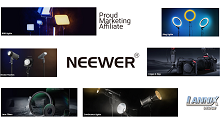Steel plates are the most popular surface used for 3D prints to build on. The plates shown on the right (two in front) have a textured surface that transfers to the 3D printed part leaving an aesthetically pleasing bottom surface. This can be used as the face of electronics enclosures and such if a nice finish is sought out. The three plates behind have a smooth surface which is also an option.
It is important that the first layer of the 3D print sticks well to the print plate. Experts recommend cleaning them with isopropyl alcohol to maintain this adhesion.
Personally I have found that the alcohol isn’t enough to keep the surface sticky enough for all first layers to adhere to the plates. The best method I have found is to wash them under hot water with dishwashing liquid and allow them to dry thoroughly before using them again for printing.
This drying rack has been designed in CAD and 3D printed in the Lannix3D enclosure. This has eliminated any adhesion issues we’ve previously experienced.










Originally posted on lannix3d.com.au